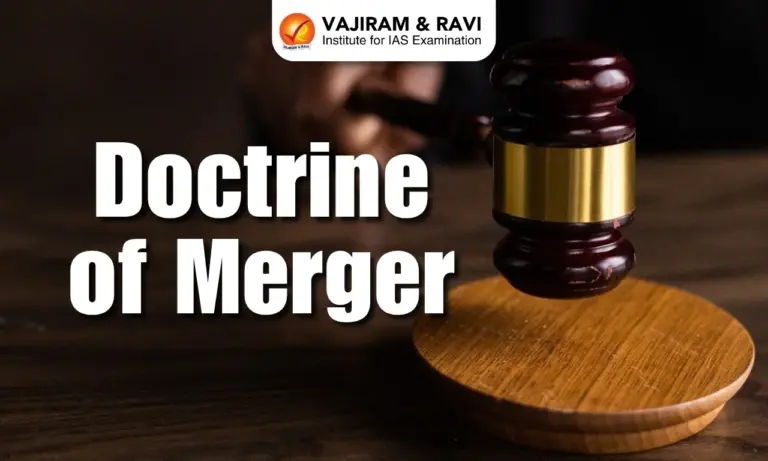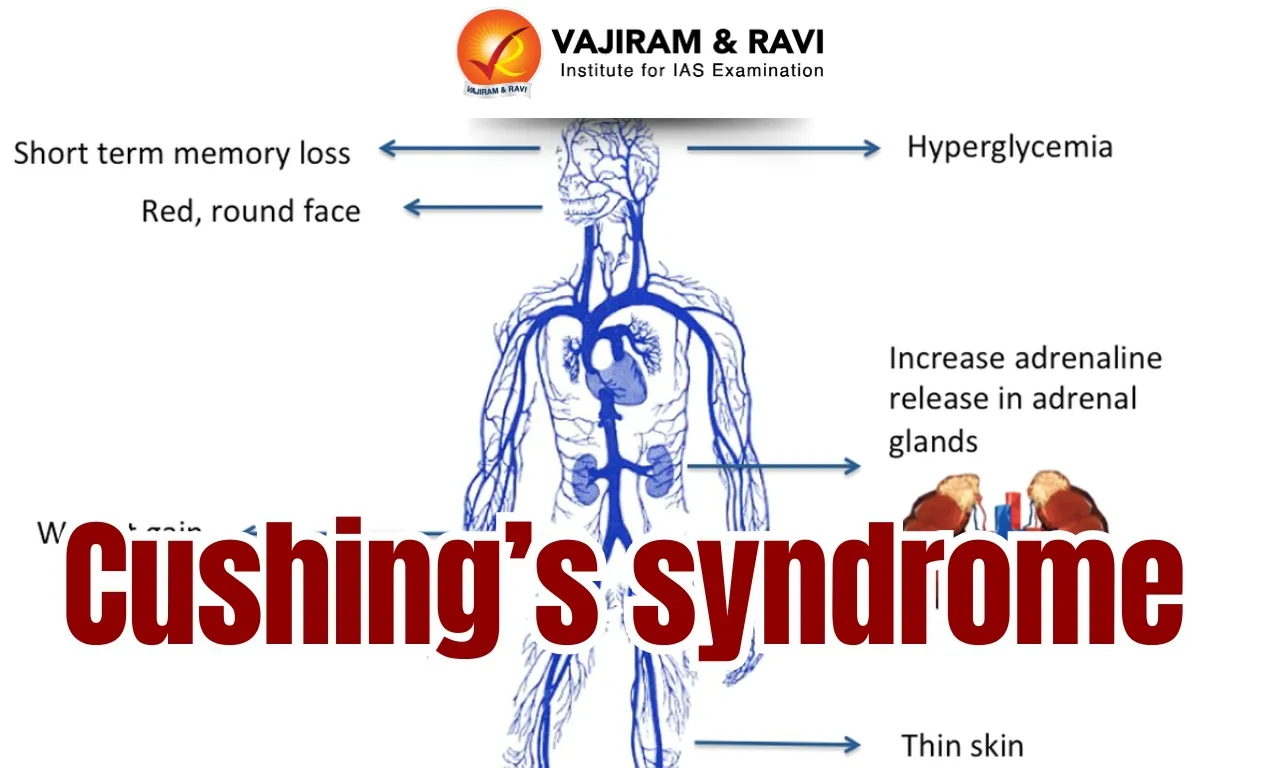Doctrine of Merger Latest News
In a judgment clarifying the limits of the doctrine of merger, the Supreme Court of India recently observed that the doctrine of merger is not a doctrine of rigid and universal application.
About Doctrine of Merger
- It is a common law doctrine founded on the principle of maintenance of decorum and propriety in the functioning of Courts and Tribunals and preserving the sanctity of the justice delivery system.
- The underlying logic being that there cannot be more than one decree or operative order governing the same subject matter at a given point of time.
- It provides that when an appellate court passes an order, the order passed by the lower court is merged with that order.
- The doctrine is not recognized statutorily but is a statement of judicial propriety and seeks to instill discipline in the functioning of subordinate adjudicating authorities, whether judicial, quasi-judicial, or administrative.
- The applicability of the doctrine of merger entails the existence of a decision of a subordinate court/forum against which a right of appeal/revision before a superior forum/authority exists, which has been exercised and which has either modified, reversed or affirmed the decision of the subordinate authority.
- The consequence of such an act would be that the decision of the subordinate authority shall merge with that of the superior forum, which only shall sustain, be operative and capable of being enforced.
- The essence of the doctrine of merger is that it is only the decisions of the appellate, revisional, or higher authority that subsist, and the order under challenge ceases to have an independent existence.
- The doctrine solves the issue of which order must be enforced and given importance if there are multiple orders passed by both subordinate and superior courts on a single issue.
- It is not a doctrine of universal or unlimited application. It will depend on the nature of the jurisdiction exercised by the superior forum and the content or subject matter of the challenge.
Source: LB
Last updated on March, 2026
→ UPSC Notification 2026 is now out on the official website at upsconline.nic.in.
→ UPSC IFoS Notification 2026 is now out on the official website at upsconline.nic.in.
→ UPSC Calendar 2026 has been released.
→ UPSC Final Result 2025 is expected to be released soon.
→ UPSC will release the UPSC Toppers List 2025 with the Civil Services final result on its official website.
→ Check out the latest UPSC Syllabus 2026 here.
→ Join Vajiram & Ravi’s Interview Guidance Programme for expert help to crack your final UPSC stage.
→ UPSC Mains Result 2025 is now out.
→ UPSC Prelims 2026 will be conducted on 24th May, 2026 & UPSC Mains 2026 will be conducted on 21st August 2026.
→ The UPSC Selection Process is of 3 stages-Prelims, Mains and Interview.
→ Prepare effectively with Vajiram & Ravi’s UPSC Prelims Test Series 2026 featuring full-length mock tests, detailed solutions, and performance analysis.
→ Enroll in Vajiram & Ravi’s UPSC Mains Test Series 2026 for structured answer writing practice, expert evaluation, and exam-oriented feedback.
→ Join Vajiram & Ravi’s Best UPSC Mentorship Program for personalized guidance, strategy planning, and one-to-one support from experienced mentors.
→ Check UPSC Marksheet 2025 Here.
→ UPSC Toppers List 2024 is released now. Shakti Dubey is UPSC AIR 1 2024 Topper.
→ Also check Best UPSC Coaching in India
Doctrine of Merger FAQs
Q1. The Doctrine of Merger is primarily related to which field?+
Q2. What is the legal effect of the Doctrine of Merger?+
Q3. Is the Doctrine of Merger universally applicable in all cases?+
Tags: doctrine of merger


















